Wisconsin’s first Connecting Entrepreneurial Communities Conference held in Platteville on May 30 and 31 embodied the very ideas of collaboration and connection that were the focus of the event. The conference offered four different tracks of breakout sessions to appeal to both business owners and entrepreneurial support organizations. The event involved many downtown locations as well. The Connecting Entrepreneurial Communities Conference is part of the Rural Wisconsin Entrepreneurship Initiative (RWEI), which is being led by UW-Madison, Division of Extension’s Community Economic Development Program and funded through DOA/WEDC.

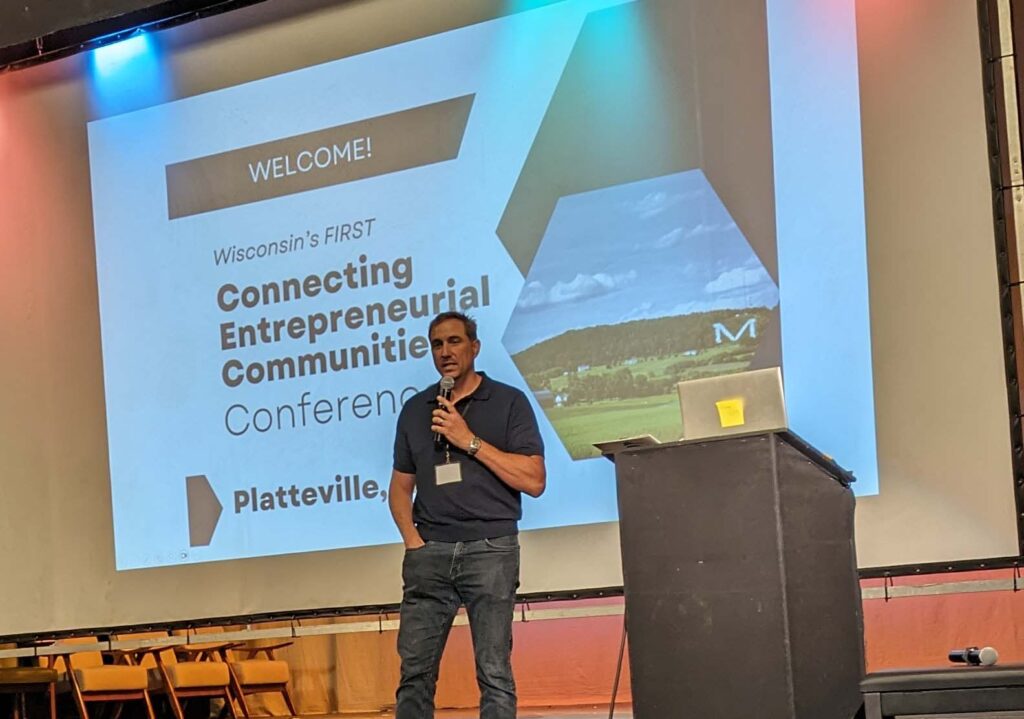
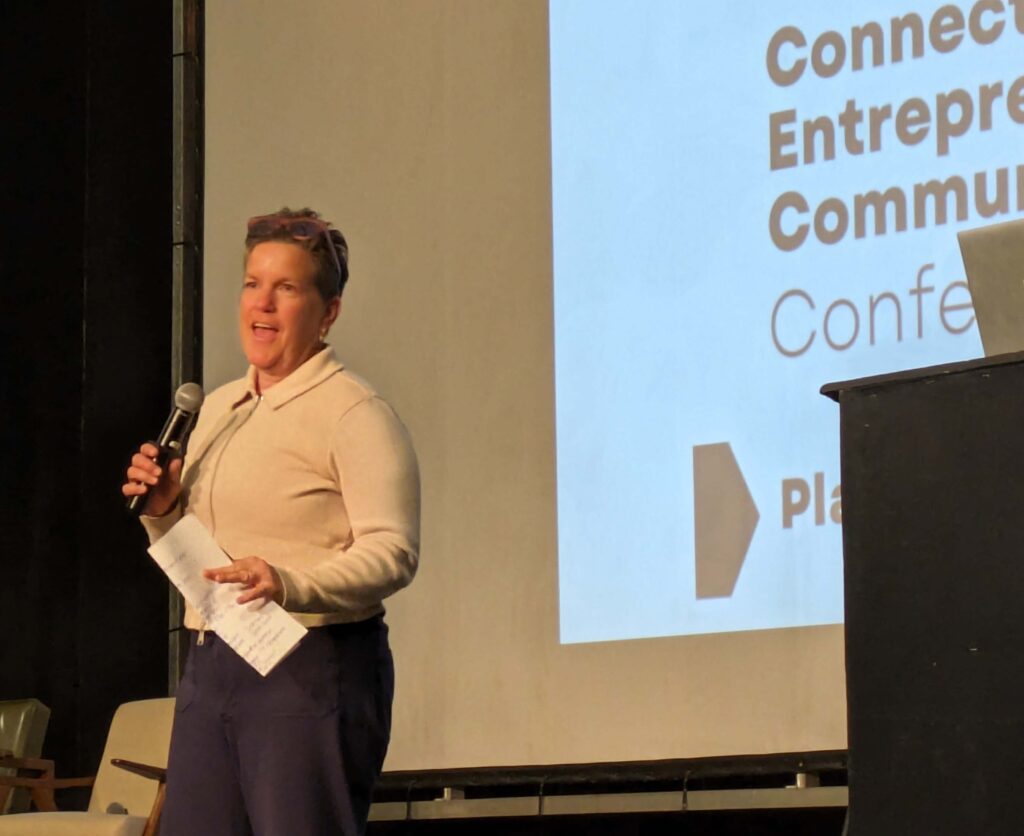
Masters of Ceremonies Kate Koziel and Troy Maggied, both of Southwestern Wisconsin Regional Planning Commission and Keynote Speaker Missy Hughes of Wisconsin Economic Development Corporation
Community Involvement
Sessions held at the Public Library, Rountree Gallery (a local volunteer-run art space), Avalon Cinema (the Main Street movie theatre), and City Hall gave participants a chance to experience the rural atmosphere firsthand and enjoy networking opportunities as they strolled from location to location. Many local restaurants hosted lunch for participants as well (Los Amigos, Downtown BBQ, 7 Hills North Restaurant, and Driftless Market.)
The conference kicked off with a Trade Show which featured many Wisconsin entrepreneurial support organizations like Wisconsin Economic Development Corporation (WEDC), Institute for Business & Entrepreneurship (IBE), Small Business Development Centers (SBDC), Small Business Administration (SBA), SCORE, and more! Participants gathered to network and obtain information about available resources. Entertainment during the trade show also included a local singing group.
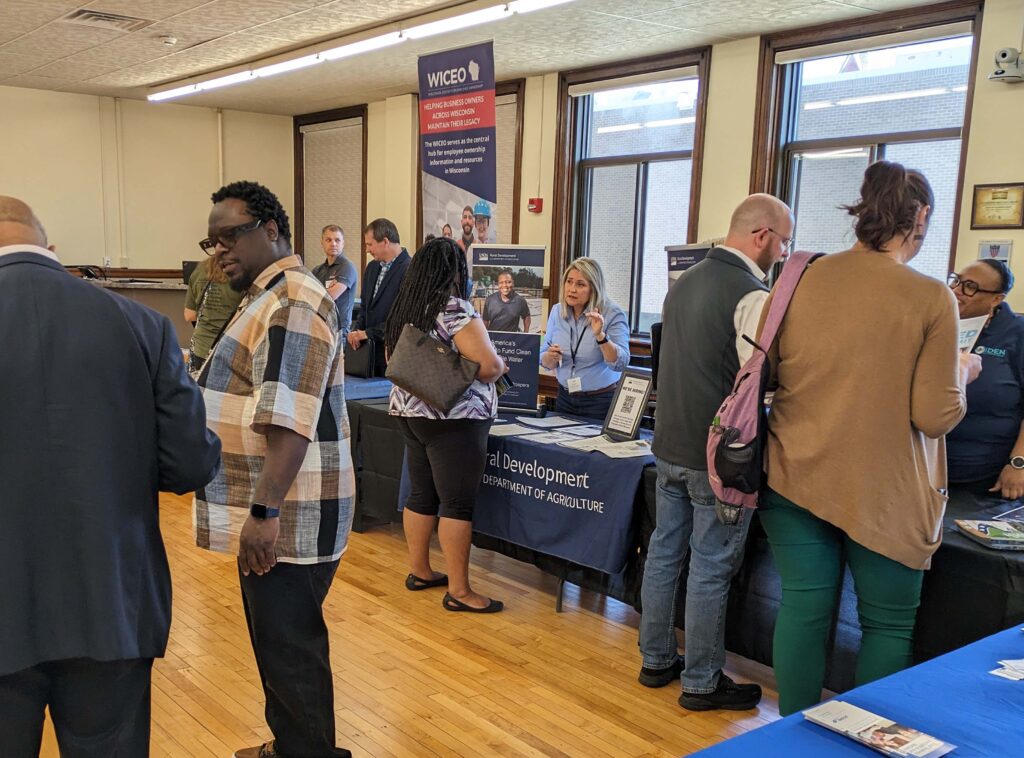
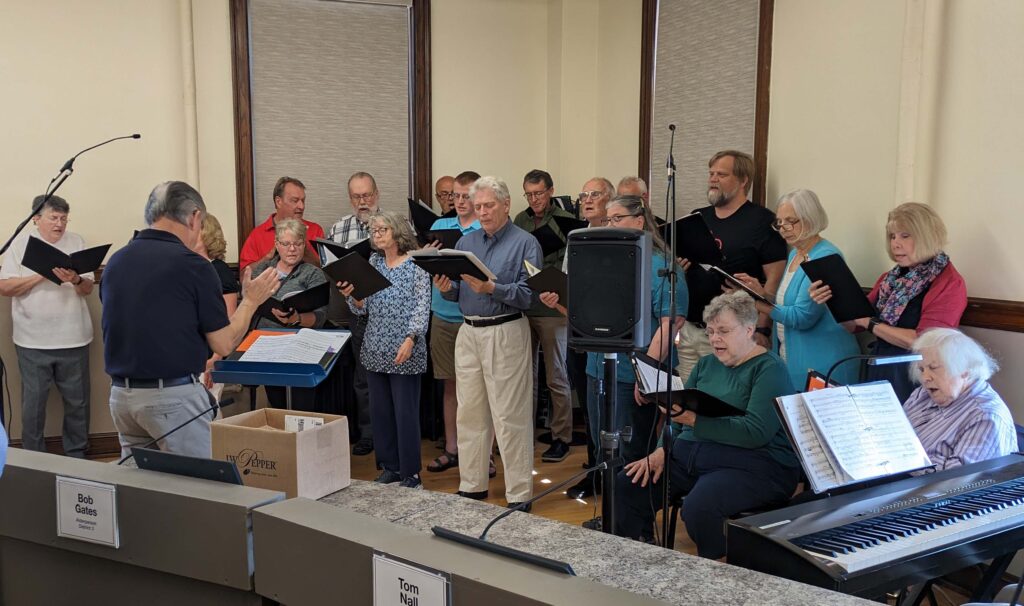
Tradeshow and local singers
Track 1 of the conference focused on entrepreneurship and economic development. Sessions for this track included information on strategy, roles, and tactics provided by Jason Glasbrenner, Economic Development Director at the City of Richland Center. Glasbrenner presented experiences, successes, and challenges of his time as Director. His advice was to discover what is accomplishable in your own community and learn how to build and maintain the connections to make those ideas possible. He emphasized not to “make something just like theirs,” in reference to trying to duplicate an idea you may have been inspired by, because what works in one setting may not in another. He also advised focusing on your community’s specific needs and holding conversations with stakeholders to change the norm and accomplish goals together.
The first track also presented sessions on a Grant County economic development case study and key partners. Hatti Brown, Executive Director of Couleecap, Inc./Wisconsin Community Action Program, discussed Couleecap’s programs and how their ideas can be applied in other communities by determining community assets and leveraging them effectively. Marjorie Rucker, Chair of Ethnic and Diverse Business Coalition of Wisconsin, shared ideas on keeping the entrepreneurial community in Wisconsin open and working for all. She suggested tapping into local organizations to find out what has already been established and how others can help expand your ideas.
Resources Available Statewide
Track 2, resources to support local business, helped participants determine who to go to for help. Nora Roughen-Schmidt, Andrew Larson, Colleen Merrill, and Margaret Ramey from the Institute for Business & Entrepreneurship (IBE) presented details on funding, training, consulting, and other services available through the Small Business Development Centers (SBDC), Food Financial Institute (FFI), Center for Technology Commercialization (CTC), and other strategic project initiatives.
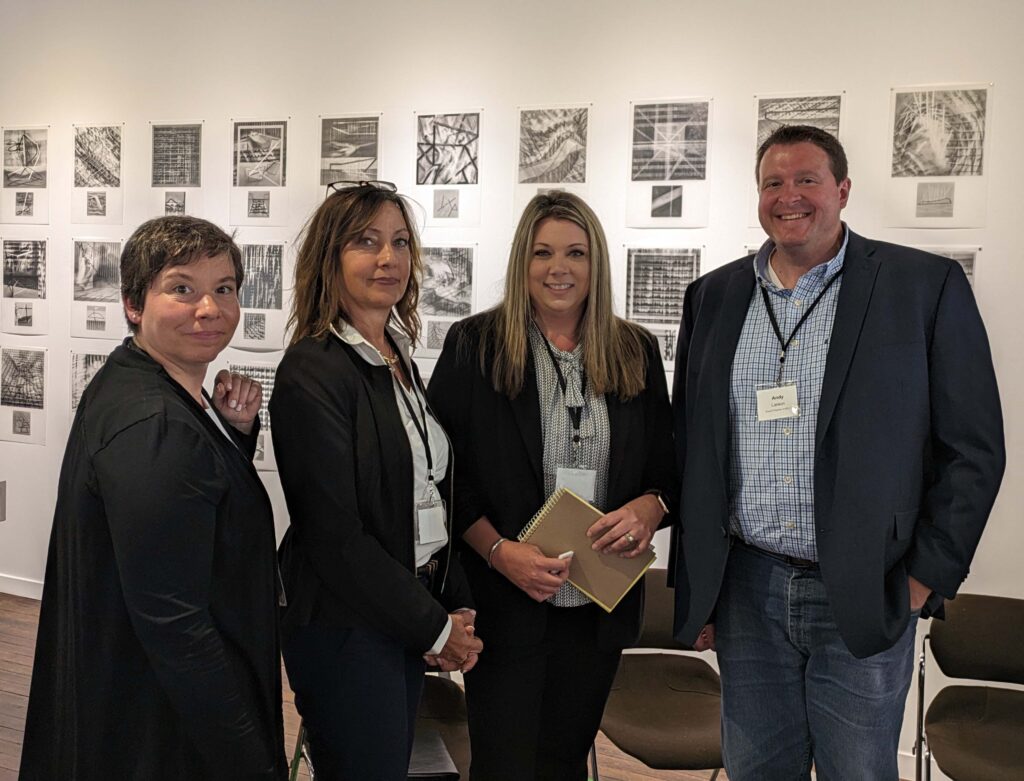
Institute for Business & Entrepreneurship team: Roughen-Schmidt, Merrill, Ramey and Larson
The second track also offered sessions on the secrets of successful incubators, hosted by representatives of the Platteville Business Incubator, Benton Business Incubator, and Coulee Region Business Center. Other sessions focused on facilitating succession planning to preserve community assets and accessing financing resources.
Focus on Inclusion and Diversity
Track 3 highlighted community belonging through entrepreneurship. Comienzos Program Manager Arlene Bolig, together with Isabella Sgriccia (Kiva Capital Access Manager) and Jeff Glazer of the Law & Entrepreneurship Clinic at UW-Madison, presented valuable insights on Latino cultures related to business ownership and financing. They provided details on working with Wisconsin Women’s Business Initiative (WWBIC) to assist diverse Latina populations.
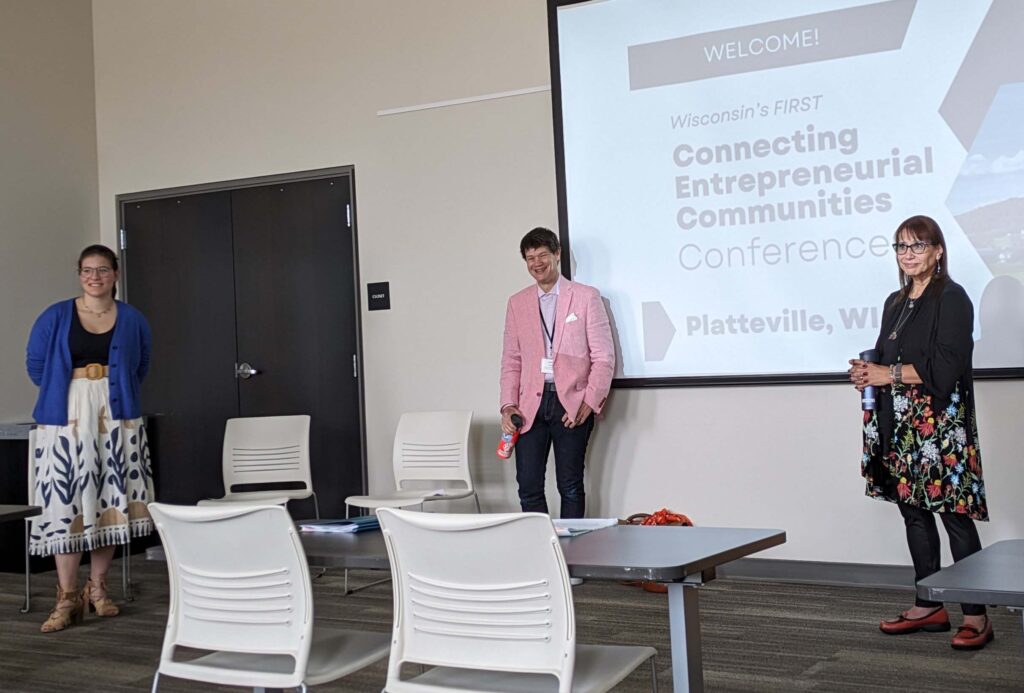
Isabella Sgriccia, Jeff Glazer, and Arlene Bolig
The third track also gave information on collective entrepreneurship through cooperatives and creating communities of belonging in rural Wisconsin. From teachers to bankers to police, this panel provided insights into how the rural community of Darlington, and Green County as a whole, have embraced diverse identities, specifically the Latino community. While emphasizing the importance of accountability and communication throughout, they provided personal, professional, and community examples of growth. They ended with a call to make humans feel comfortable through support and encouragement to ensure buy-in from all.
Help Specific to Farmers and Agri-food Businesses
Track 4 shared innovations in local agri-food businesses. Sessions discussed creating a sustainable agriculture engine and the economic impact of local food systems. A panel of local experts offered insights on crops and farms in the Driftless region of the state.
This final track also offered an eye-opening session on financial resources available to agri-preneurs. Representatives from Farmer Savings Bank, MidWestOne Bank, Compeer Financial, and USDA Farm Service Agency shared insights on capital access available to farmers and other agribusiness as well as how to take steps to secure specific financing.
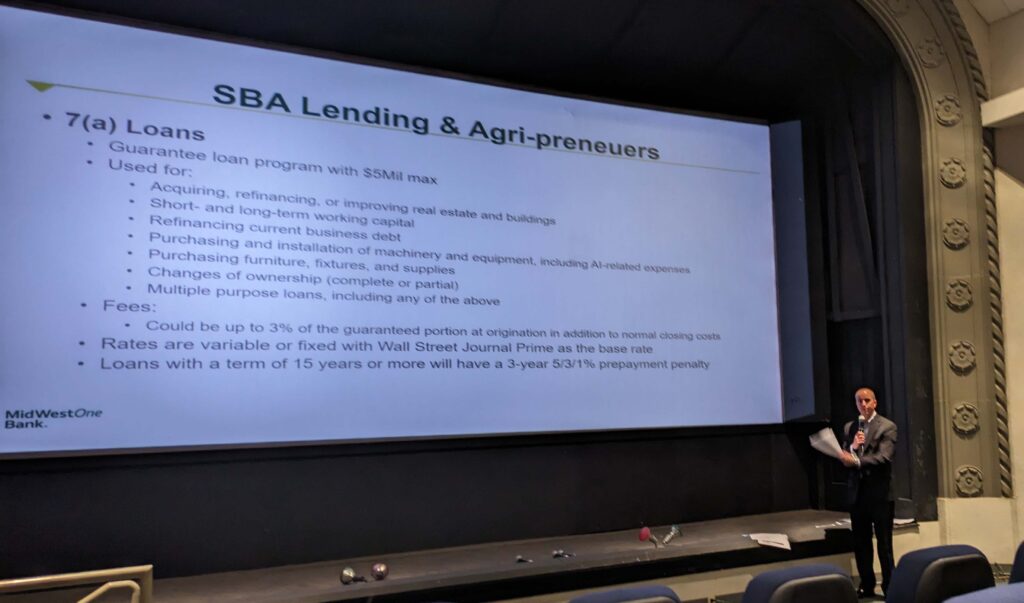
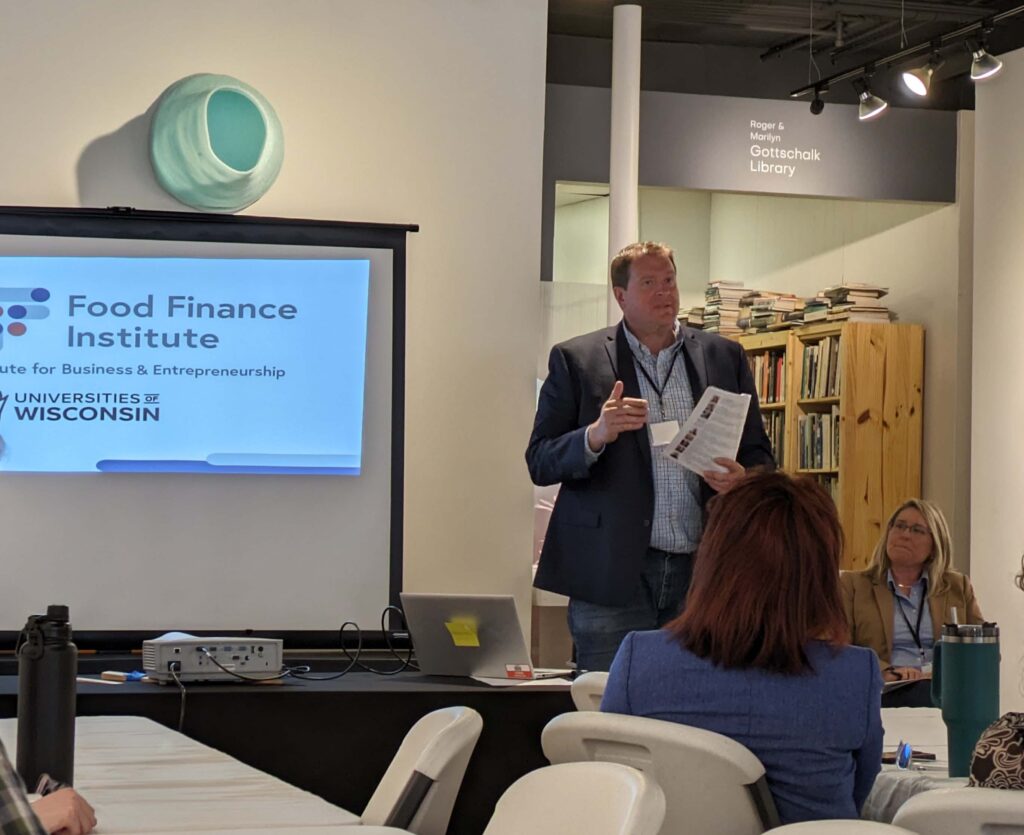
Nicholas Felder of MidWest One Bank and Andy Larson of Food Finance Institute
Tours and Local Innovation Center
The Connecting Entrepreneurial Communities conference wrapped up with demonstrative tours of local small business resources: Platteville Business Incubator and the Huff Innovation Center at UW-Platteville. The Huff Family Innovation Center at UW-Platteville provides more than 250 tools and spaces to work and collaborate to bring ideas to life.
The space is commonly referred to as “makerspace” and is one of the Midwest’s largest, measuring 20,000 square feet. The equipment and machinery are available to students, staff, alumni and community members. The space has only been open for two years but it has made a massive impact on the local business scene in and around Platteville.
A majority of the machines in the center – including lathes, bandsaws, and robots – all use Computer Numerical Controls, known as CNC machining. Tools and hands-on instruction for their use are offered for diverse projects: 3D printing, laser technology, machining and metal fabrication, textiles, woodworking, electronics, and video production.
The most popular offering is the vast array of equipment available for the Pioneer Prototyping Service; they fabricate multifaceted prototypes for businesses and startups. Benefits of the service include accelerated time to market, access to new technologies, and industry expertise.
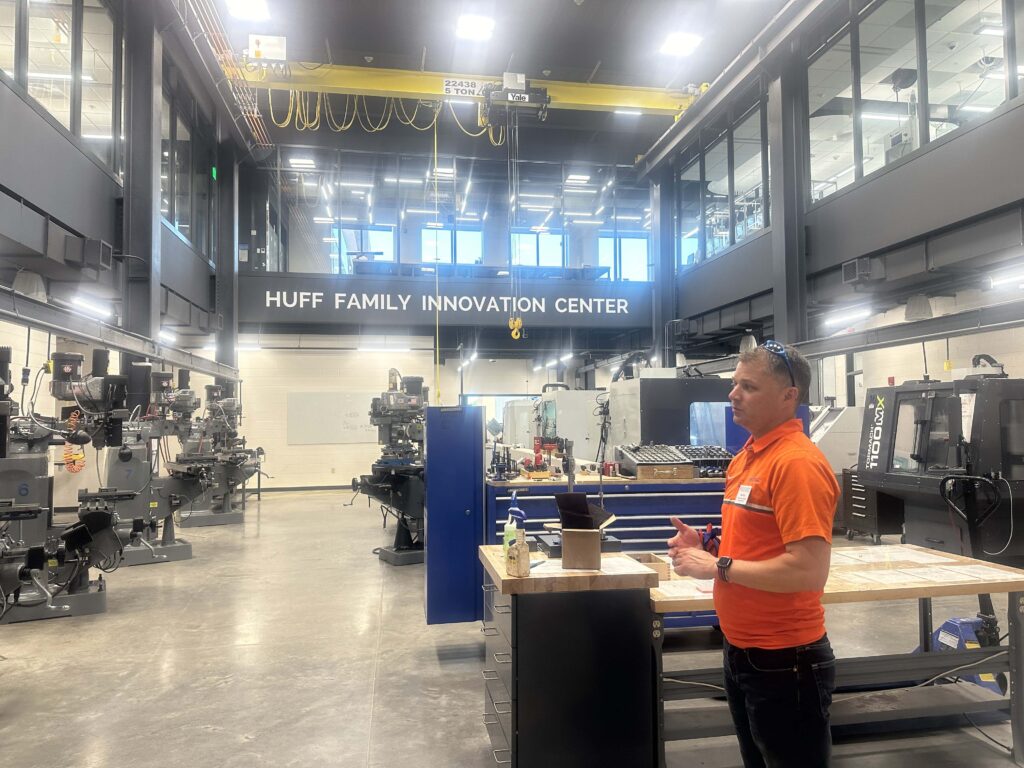
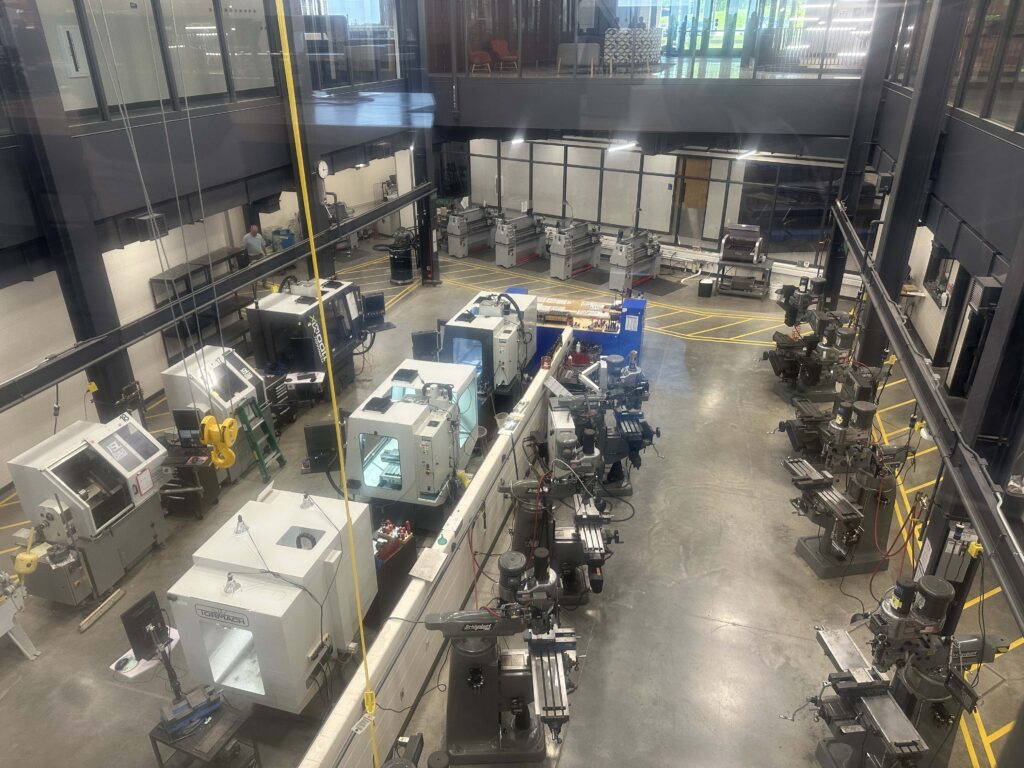
The Connecting Entrepreneurial Communities Conference and the Huff Family Innovation Center demonstrated that many opportunities for collaboration and innovation are available to small business owners in Wisconsin, and specifically in rural communities.
